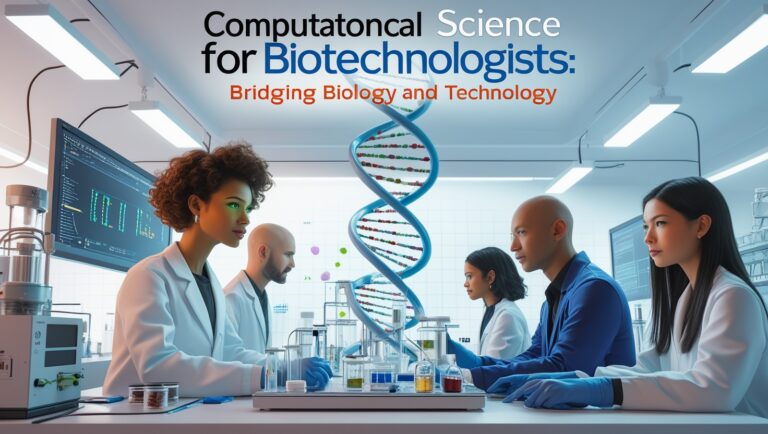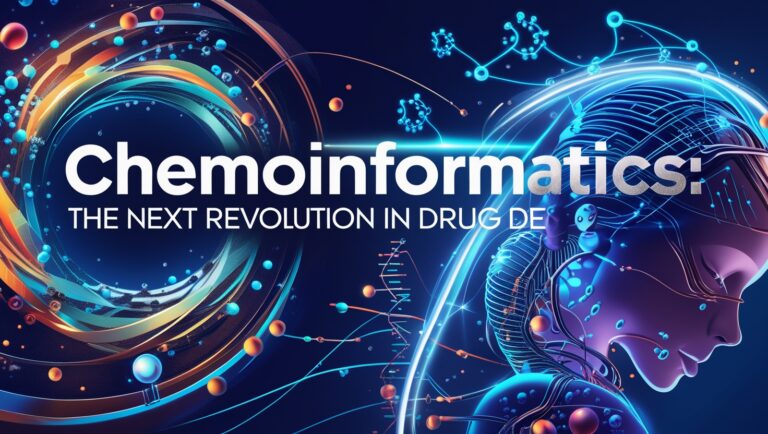The pharmaceutical industry is constantly evolving, with Computer-Aided Drug Design (CADD) leading the way in revolutionizing how drugs are discovered and developed. By combining computational techniques with biological insights, CADD enables researchers to design drugs faster and more accurately than ever before. Biogate is at the forefront of providing specialized training in CADD, empowering scientists and researchers to take advantage of these advanced tools and methods to create the next generation of pharmaceutical breakthroughs.
What is Computer-Aided Drug Design (CADD)?
CADD is the use of computational methods to assist in the design and development of new therapeutic drugs. Instead of relying solely on traditional lab-based drug discovery methods, CADD uses molecular modeling, virtual screening, and docking techniques to predict how potential drug molecules will interact with biological targets like proteins or enzymes. This helps researchers identify the most promising drug candidates before entering costly and time-consuming laboratory testing phases.
Key Applications of CADD and How Biogate Helps You Master Them
- Structure-Based Drug Design (SBDD)
In structure-based drug design, researchers use the 3D structure of biological targets (such as proteins) to identify potential drug molecules. By analyzing how these molecules fit into the active sites of proteins, CADD can suggest modifications to enhance binding affinity and improve drug effectiveness. Biogate offers hands-on training in tools like AutoDock and Schrödinger, allowing you to practice and refine your skills in docking and 3D molecular visualization. - Ligand-Based Drug Design (LBDD)
Ligand-based drug design focuses on creating drug molecules based on the properties of known active compounds. By comparing the structure of new molecules to existing drugs, researchers can predict how well a new drug will interact with a biological target. Biogate teaches you how to use QSAR (Quantitative Structure-Activity Relationship) models and pharmacophore modeling to design drugs based on these similarities. - Molecular Docking
Molecular docking is a computational method used to predict how a drug will bind to its target protein. By simulating the binding interactions, docking tools can rank the potential effectiveness of different drug candidates. Biogate provides training in popular docking tools like AutoDock Vina, giving you the skills to perform high-precision docking simulations and interpret the results. - Virtual Screening
In virtual screening, researchers use computational methods to rapidly evaluate large libraries of chemical compounds, identifying those with the best potential for drug development. Biogate offers courses that teach you how to perform virtual screening using databases like ZINC and PubChem, providing practical experience in optimizing screening strategies. - ADME and Toxicity Predictions
Predicting the Absorption, Distribution, Metabolism, and Excretion (ADME) properties of drug candidates is critical to understanding how they will behave in the human body. CADD tools also help predict toxicity to ensure the safety of new drugs. Biogate offers specialized training on how to integrate ADME and toxicity prediction tools into the drug design process, helping researchers avoid costly failures in later development stages.
Why is CADD Essential and How Does Biogate Support It?
CADD has transformed the pharmaceutical industry by significantly speeding up drug discovery while reducing costs. Traditional drug development can take years and cost billions of dollars, but CADD tools allow researchers to test hypotheses, screen compounds, and optimize drug candidates in a fraction of the time. Biogate ensures that you are fully equipped to harness the power of CADD by providing comprehensive training in the most advanced computational tools and methodologies, tailored specifically for biotechnologists and drug developers.
Challenges in CADD and How Biogate Helps Overcome Them
CADD requires proficiency in multiple disciplines, including chemistry, biology, and computational modeling. Additionally, the accuracy of predictions depends on the quality of the structural data and the computational models used. Biogate helps you overcome these challenges by offering practical, hands-on training with real-world datasets and cutting-edge software. You’ll gain the skills needed to navigate complex drug design challenges confidently.
How Biogate Prepares You for Success in CADD
At Biogate, we provide a range of courses and resources designed to make you proficient in CADD. Our platform offers:
- Training in molecular docking and virtual screening, essential tools for identifying promising drug candidates.
- Hands-on experience with leading software such as Schrödinger, AutoDock, and PyMOL.
- ADME and toxicity prediction courses to help you understand drug behavior in the body and minimize potential risks.
- Access to case studies and real-world projects that simulate the drug discovery process, giving you the experience to tackle professional challenges.
Conclusion
Computer-Aided Drug Design (CADD) is transforming how drugs are discovered, enabling faster and more efficient development processes. From structure-based design to ADME prediction, Biogate equips you with the tools and skills necessary to excel in this cutting-edge field. Whether you’re involved in biotechnology, pharmaceutical development, or research, Biogate provides the training and expertise needed to become a leader in drug design.



